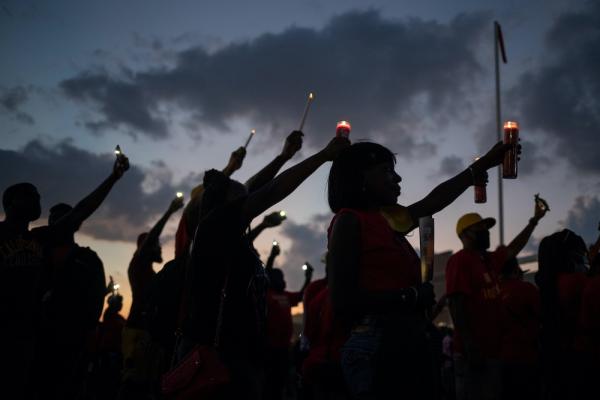Jun 18, 2020
Eight minutes and forty-six seconds is a long time. It is enough time to stop, take some deep breaths, feel your body, to pray if you choose, think, reflect, and ask what you’ve been missing. That’s what many are learning as we take a knee for nearly 9 minutes at protests and vigils around the country in response to the killing of George Floyd.
Read the Full Article

Already a subscriber? Login
